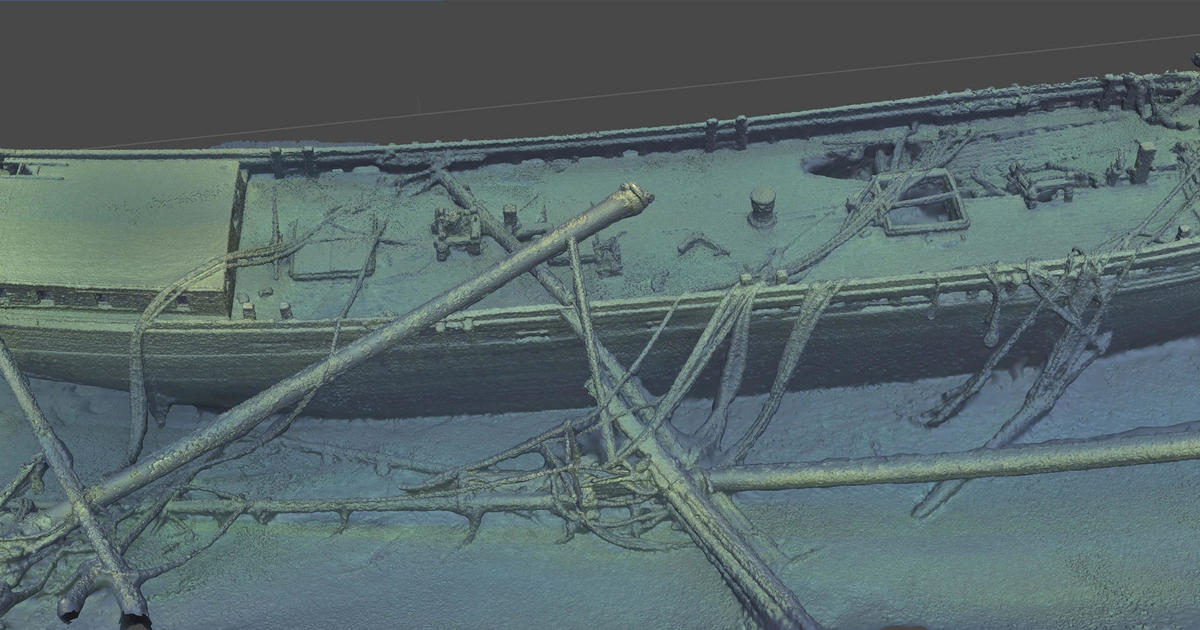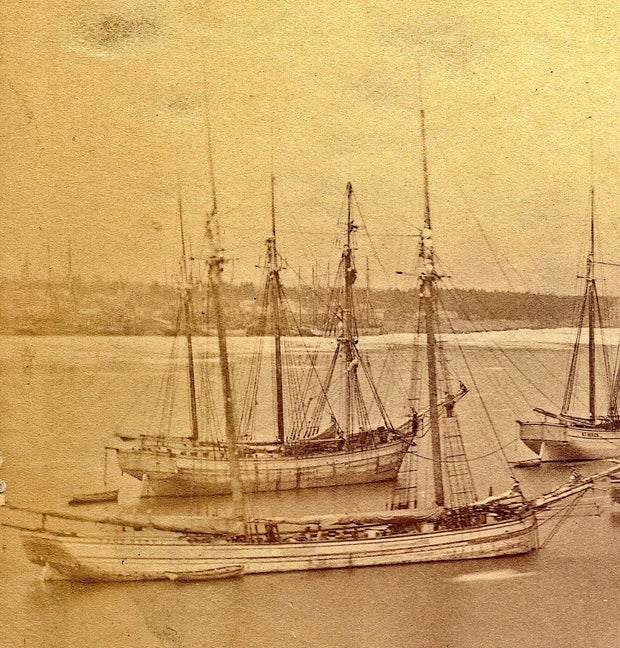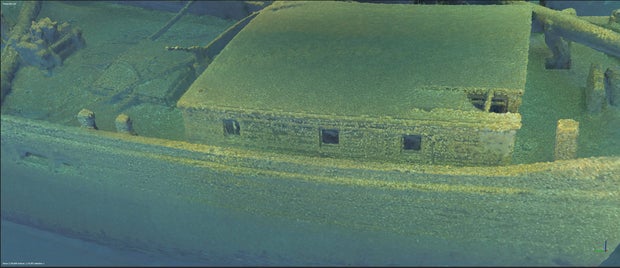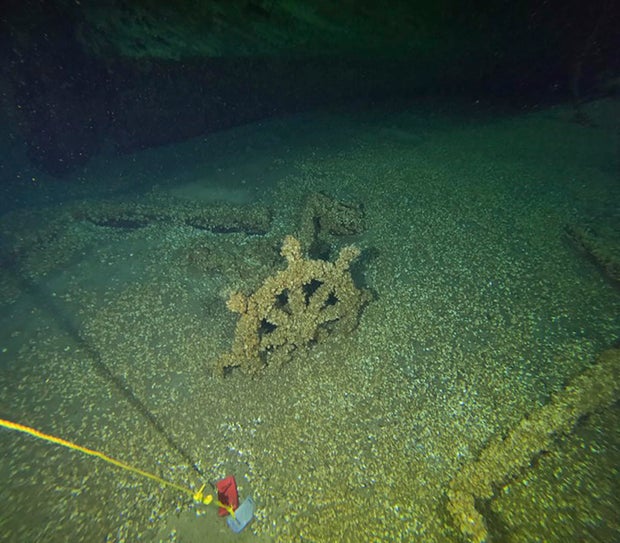Shipwreck hunters have discovered the intact remains of a schooner that sank in Lake Michigan in 1881 and is so well-preserved it still contains the crew’s possessions in its final resting spot miles from Wisconsin’s coastline. Historians on Friday called it a “remarkable discovery” of a “significant shipwreck.”
Wisconsin maritime historians Brendon Baillod and Robert Jaeck found the 156-year-old Trinidad in July off Algoma at a depth of about 270 feet. They used side-scan sonar to hone in on its location based on survivor accounts in historical records.
“The wreck is among the best-preserved shipwrecks in Wisconsin waters with her deck-house still intact, containing the crew’s possessions and her anchors and deck gear still present,” states a Thursday news release announcing the Trinidad’s discovery.
Tamara Thomsen/Zach Whitrock / AP
The 140-foot-long schooner was built at Grand Island, New York, in 1867 by shipwright William Keefe, and was used primarily in the grain trade between Milwaukee, Chicago and Oswego, New York.
But it was carrying a load of coal bound for Milwaukee when early on May 13, 1881, it developed a catastrophic leak after passing through the Sturgeon Bay Ship Canal.
/ AP
According to the Wisconsin Historical Society, the captain was nearly killed by a block that fell from the decaying wire rigging as the owners did not invest much money into the vessel’s upkeep.
On its final voyage, the Trinidad “suddenly and violently lurched” and sank about 10 miles off the coast of Algoma, the society said.
“The captain and the crew immediately escaped in the ship’s yawl,” the society said in a Facebook post. “The only loss aboard the Trinidad was the ship’s mascot, a large Newfoundland dog who was asleep next to the stove when the ship began to sink.”
Tamara Thomsen/Zach Whitrock / AP
Captain John Higgins and his crew of eight survived and reached Algoma, about 120 miles north of Milwaukee, after rowing for eight hours in the ship’s yawl boat. Higgins believed the Trinidad’s hull was damaged a few days before the sinking as it passed through ice fields in the Straits of Mackinac.
After discovering the Trinidad in July, Baillod and Jaeck reported their finding to an underwater archaeologist with the Wisconsin Historical Society who arranged for the site to be surveyed with an underwater vehicle that verified the vessel’s identity and documented historic artifacts, according to the news release.
A three-dimensional model of the ship has been created to allow people to explore the site virtually. Baillod and Jaeck plan to work with the Wisconsin Historical Society to nominate the site to the National Register of Historic Places.
Tamara Thomsen / AP
Experts estimate there are more than 6,000 ships have gone down in the Great Lakes since the late 1600s.
In July, researchers searching for World War I-era minesweepers that mysteriously vanished in Lake Superior over a century ago instead found a long-missing ship that sank to the bottom of the lake in 1879.
In April, researchers found the wreckage of two ships that disappeared in Lake Superior in 1914. In March, a ship carrying a load of coal when it sank in a storm in 1891 was discovered in the lake.
And in February, a 144-foot shipwreck that searchers called a “Bad Luck Barquentine” was found in Lake Superior more than 150 years after it sank.





